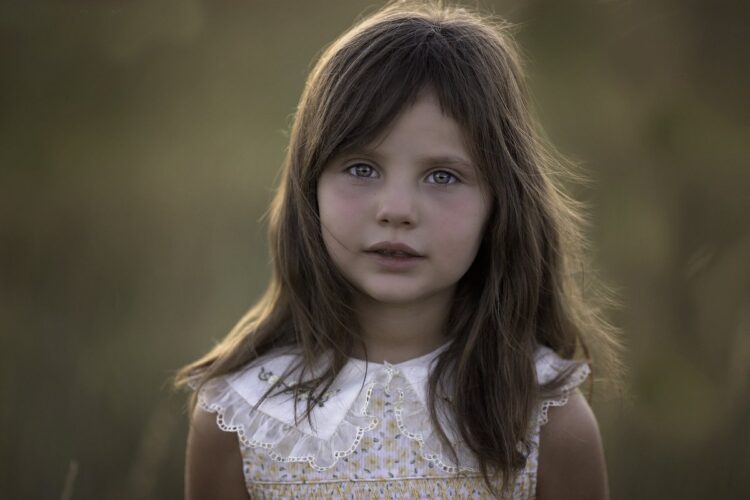
What you need to know about divorce through the eyes of a child.
Separation and divorce are the most stressful events in life which impacts the whole family. As a parent, the overriding concern is how will my children handle this situation? How will this affect them? Is it better to stay in the marriage until they are older and out of the house? Will they recover?
As a parent and divorce professional who experienced divorce, I would love to say that I have a definitive answer. But unfortunately, I don’t and I’m not alone. There are many conflicting studies about the effects that divorce has on children. There are studies that show children recover and go on to lead happy and productive lives. But there are other studies that state they’ll be more susceptible to unhealthy behaviors and emotional issues that can lead to less successful lives. I personally choose to focus on the former study because it’s more empowering. The reality is that children will be affected differently based on their temperament and personality as well as their age, and the parents’ stability to name a few. The combination of these factors will influence their ability to process their emotions and their overall experience.
You can minimize the effects of separation and help your children by understanding their needs, concerns and emotional state. Children who are under stress are more prone to act out so their ability to think rationally will also be impaired. A child’s sense of control becomes unstable when divorce and separation are being “done” to them. This causes them to feel as though they have no control over their life, so it’s important to support their sense of control in other ways. That’s why we have to be patient with them. They need to feel heard and we have to acknowledge their pain. We also need to lighten up and expect less. Show them compassion and be more forgiving. Kids do better when they know and are reminded that they’re loved by both parents and that the separation is not their fault. They also may benefit with additional support from a professional such as a counselor, therapist or coach.
The process of divorce and separation within the family unit begins when you have the initial discussion with your children. This was hard for me because I wanted to answer their many questions but I wasn’t even sure of the answers myself. There’s a quote that I really like from the relationship therapist and author Esther Perel who says, “Divorce is not the end of a family; it’s a reorganization.” This can be a very refreshing perspective to know. When you first share this news with your children expect that anything can happen in terms of their reaction. Even if they witnessed conflict within the relationship, most kids will still be surprised with the news. Depending on their age, they will have specific developmental responses and differences. Remember that before you told them the big news, you were most likely thinking about it for a long time and you had more time to process your feelings than them. Keep this in mind if they seem like they’re taking longer to get through these challenging circumstances.
As a parent, you are a model for behavior. The way you handle the separation will directly influence your children so it pays to exhibit healthy behavior. That doesn’t mean having to pretend that everything is okay. Because this is a loss, and grief is a natural part of life, it’s important to allow room for this experience. Be authentic and come from a place of truth without extreme overreacting. As adults, we know how challenging it can be to process emotions but it’s even harder and more confusing for children. They don’t understand what they’re feeling and with the range of emotions it’s difficult for them to express themselves and explain their feelings.
Modeling good behavior also applies to how we speak about our ex to our children. We all know that it’s important to refrain from saying anything bad about the other parent in front of the kids. This can be hard to do when they showed up an hour late to pick up the kids and didn’t let you know ahead of time. Avoiding negative talk about the other parent should be understood but there’s another perspective that further confirms this point. Children are a product of both parents which means they have qualities from both. When a child hears negative talk about their parent, they often internalize it. This can cause them to feel inherently flawed affecting their self-esteem. When a parent displays poor judgment and action, the healthiest approach is to relate the comments to their behavior rather than making the person “bad”.
For my family the “reorganization” resulted in a cross-country move which was a huge transition for us. After all, the most significant change for children is to their living environment. Not only is a parent moving out, but kids will be required to divide their time and their things between two separate homes. That’s a lot to ask of your children. What felt like “home” and what offered a sense of comfort and security for them will suddenly take on a new meaning. This back and forth can feel disruptive to their emotional rhythm, especially for a sensitive child. Just imagine what this might feel like if you had to live in two homes every other week. Kids have to adjust to this routine in many ways and it takes time. Children will be concerned about their friendships so helping to maintain consistency within their circle of friends will be extremely supportive. Understand that they will have to be more organized to keep track of where they have their belongings. So when it comes to homework and they forget their assignment at the other home, try to give them some slack.
Most likely the rules at each home will be different which can be challenging for everyone. Children have to live with rules that frequently change based on their location. Some kids will be thankful for this especially when it translates to extra TV, a later bedtime or more sweet snacks. However, conflicting rules and beliefs can cause a degree of uncertainty which can be confusing. Knowing this makes it easier so you can allow time for the transition between homes. It benefits everyone when parents are able to work together to create common rules.
In terms of custody arrangements, the laws differ by state. However, the common goal is to ensure that children are given the best opportunity to enjoy the continuity in their relationship with both parents. As a Divorce Coach, I work with clients all over the country but in New Jersey where I’m located, family law favors a 50/50 physical custody agreement. Does this model work? Yes and no, depending on the circumstances. Is it fair to children? Yes, when their individual needs are taken into account. With that said, it’s always best when parents can reach a mutually agreeable co-parenting plan on their own which can be easier if they use the support of divorce and co-parenting platforms and professionals.
Adjusting to the routines of a new lifestyle takes time. And having realistic expectations of your children and the separation process will carry you through. You should always remember your children are doing the best they can. Just like you are.
